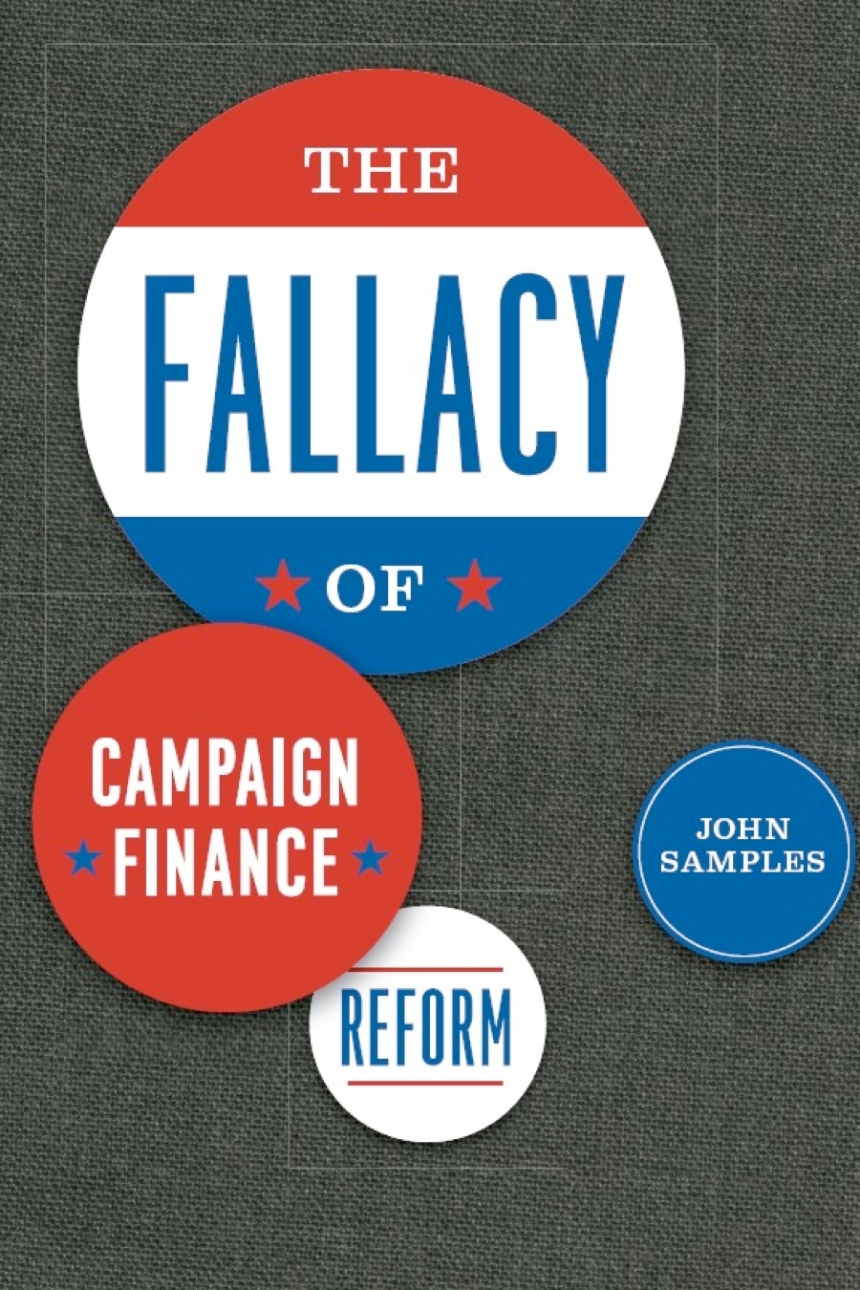The Fallacy of Campaign Finance Reform
At first glance, campaign finance reform looks like a good idea. McCain-Feingold, for instance, regulates campaigns by prohibiting national political parties from accepting soft money contributions from corporations, labor unions, and wealthy individuals. But are such measures, or any of the numerous and similarly restrictive proposals that have circulated through Washington in recent years, really good for our democracy?
John Samples says no, and here he takes a penetrating look into the premises and consequences of the long crusade against big money in politics. How many Americans, he asks, know that there is little to no evidence that campaign contributions really influence members of Congress? Or that so-called negative political advertising actually improves the democratic process by increasing voter turnout and knowledge? Or that limits on campaign contributions make it harder to run for office, thereby protecting incumbent representatives from losing their seats of power?
Posing tough questions such as these, Samples uncovers numerous fallacies beneath proposals for campaign finance reform. He argues that our most common concerns about money in politics are misplaced because the ideals implicit in our notion of corruption are incoherent or indefensible. The chance to regulate money in politics allows representatives to serve their own interests at a cost to their constituents. And, ironically, this long crusade against the corruption caused by campaign contributions allows public officials to reduce their vulnerability by suppressing electoral competition.
Defying long-held ssumptions and conventional political wisdom, The Fallacy of Campaign Finance Reform is a provocative and decidedly nonpartisan work that will be essential for anyone concerned about the future of American government.
328 pages | 22 line drawings, 2 tables | 6 x 9 | © 2006
Economics and Business: Economics--Government Finance
Law and Legal Studies: Law and Economics
Political Science: American Government and Politics, Political Behavior and Public Opinion, Political and Social Theory
Reviews
Table of Contents
Introduction: Money and Speech
Part I. The Conflict of Ideals
1. The Madisonian Vision of Politics
2. The Progressive Vision of Politics
Part II. Four Illusions
3. The Corruption of Representation
4. Political Culture
5. Equality
6. Electoral Competition
Part III. Realities
7. The Origins of Modern Campaign Finance Law
8. McCain-Feingold and the Market for Incumbent Protection
9. A Liberalizing Agenda
Notes
Index
